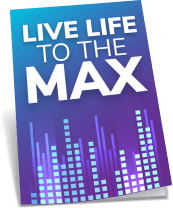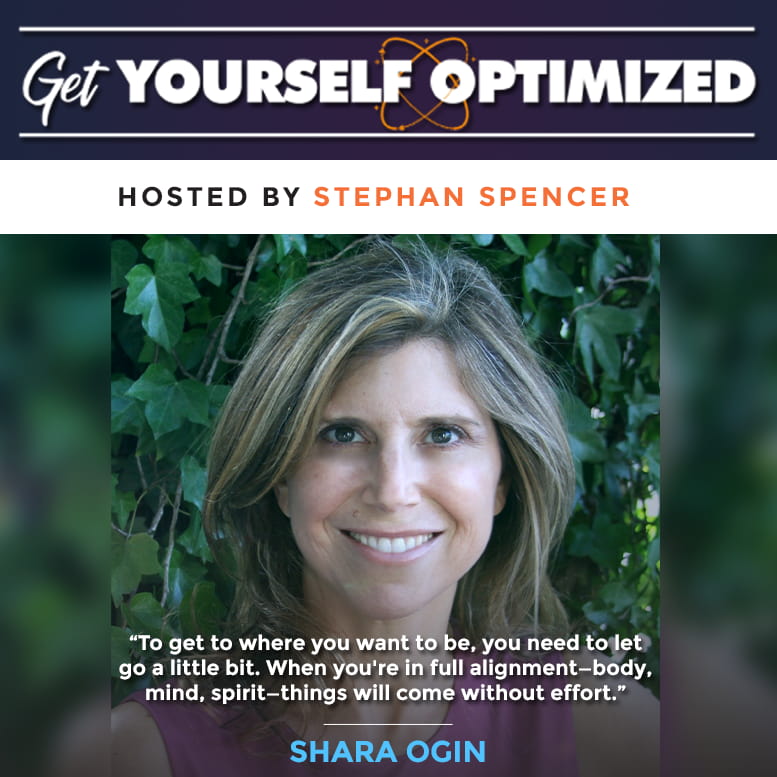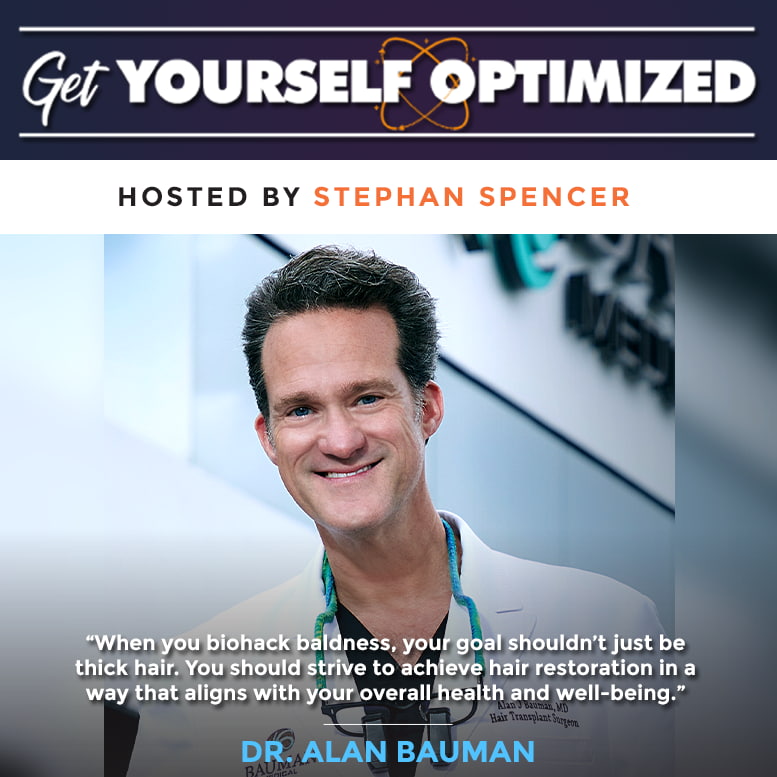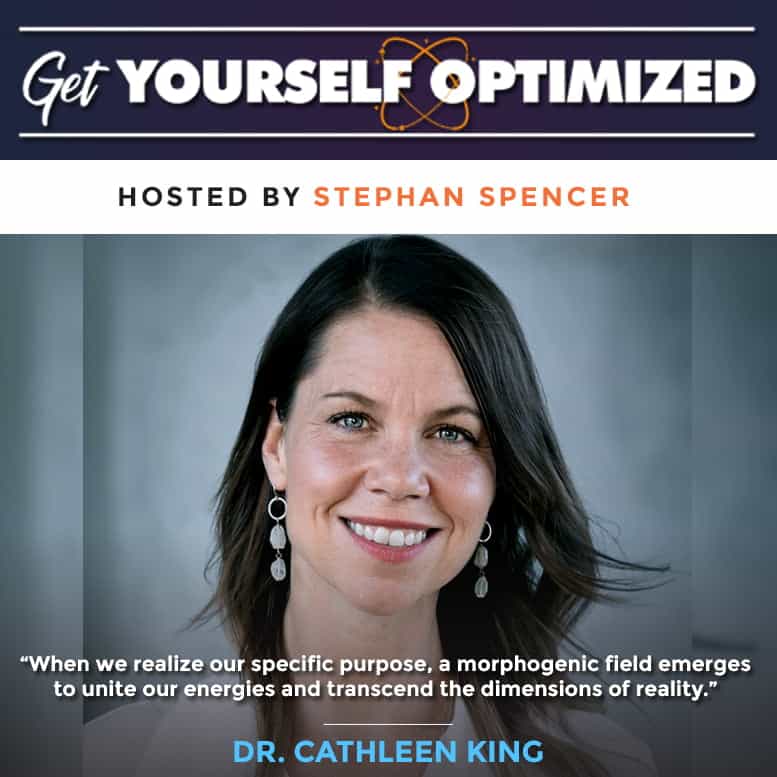In this Episode
- [01:52]Phil Johnson traces back his experiences with dyslexia that led to developing emotional intelligence.
- [05:08]Phil explains what emotional intelligence means to him.
- [08:12]Phil describes how we can achieve the desired results for our goals.
- [15:31]Phil shares his personal journey of overcoming dyslexia and achieving success through emotional connections.
- [20:28]Stephan asks Phil about his spiritual awakening and belief in connecting with spirituality, divinity, and genius.
- [25:16]Phil emphasizes the importance of authentic listening in business leadership.
- [30:42]Phil describes how being present in a work environment can challenge traditional workplace culture. He also talks about his personal experience with burnout and how he overcame it.
- [33:08]How can we best reconnect with our purpose?
Phil, it’s so great to have you on the show.
Stephan, it’s great to be here. It’s a pleasure to be on your show.
Thank you. First, let’s talk a bit about your origin story. How did you end up doing what you do?
I would say that it goes back to my birth. I was born with dyslexia, although I didn’t realize I had dyslexia until I was about 35 years old because there was no such thing as dyslexia or ADHD in those days.
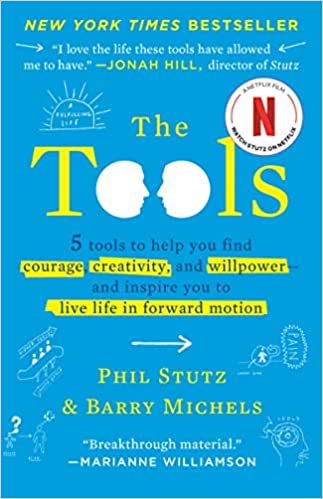
Unfortunately, because my brain doesn’t work the way most people’s brains work, it forced me to do much of what I now refer to as emotional labor. That helped to give me insights into myself and other people that prepared me for the work I’ve been doing for the last 21 years.
Along the way, I took a 20-year sabbatical in the semiconductor industry, so I was an executive in the semiconductor industry before I left that to do what I’m doing today.
What would be an example of a life-changing experience for you and a life-changing experience for one of your students or clients? Of course, they don’t have to be from the same scenario, but I’m curious to hear. You’ve been doing this for a long time, with 21 years, so I’m sure some milestone moments stick out for you.
I got on this path in January of 1968, a month after my mother died of breast cancer, and I have committed to doing this type of work and have been on this path ever since. So I’m very grateful for that.
There have been many milestone moments for people who have gone through the MBL Program. Everybody that goes through the program develops a greater awareness of what’s happening in them and around them. As for going through the program, at some point, it’s about how powerful the development of their emotional intelligence is and how it really multiplies their results and effectiveness.
I ask them if there’s anything I could have said to them at the beginning that could have prepared them for what they know now, and everybody always says no. Because the development of emotional intelligence is an experiential process—it’s not an intellectual process—it always requires an initial leap of faith. That faith is usually driven by an urgent desire for better results in the chromogenic. However, there are no magic words that can help people understand the value and importance of developing their emotional intelligence prior to beginning the journey.
Whenever we take an action that moves us outside of our comfort zone, there’s a part of our lizard brain that doesn’t want us to do that.
What does emotional intelligence mean to you? This is a term that was popularized not too long ago before that. I don’t know that that was really even a thing. There was IQ, but there wasn’t EQ until Daniel Goleman.
When you think about emotional intelligence, what are some examples or hypothetical anecdotal explanations that help somebody to wrap their head around, oh, that’s what emotional intelligence is versus just intellect, common sense, or being a good person?
The journey begins with you having to develop an emotional connection to a desired result that’s greater than the fear that will generate in you when you leave your comfort zone to start moving in that direction. That’s what I call the “fuel” for the journey. That’s the starting point.
Whenever we take an action that moves us outside of our comfort zone, there’s a part of our lizard brain that doesn’t want us to do that. It secretes a hormone into our bloodstream called cortisol, and that causes us to go into what psychologists often refer to as amygdala hijack. We would have fight, flight or freeze mode and often say and do things we later regret.
When we’re in the grip of the hijack, we’re not really conscious. We’re reactive. The development of our emotional intelligence enables us to feel the fear and anxiety triggered when we leave our comfort zone and move through it instead of allowing that fear to keep us trapped in our comfort zone. That’s what I refer to as emotional labor.
When you’re talking about moving through fear and anxiety, that reminds me of a book that was very helpful to me. It was called The Tools. It’s written by two psychologists or psychiatrists. They have these five tools that, in their practice, changed outcomes for people very quickly and got them the outcomes that they were after. They didn’t have to go through years or decades, even of talk therapy. They got almost instant major results by using these tools.
We all have to do our own emotional labor of feeling and moving through our fear in order to achieve better results.
This is the first tool of the five. Visualize the fear that you’re facing as a cloud of dust, black specks, and amorphous black cloud, and you’re going to run towards it and through it.
The example story that the co-author shared is that his high school buddy, when they were both in high school, was an incredible athlete. He was a state football player who was recognized throughout the state. He shared with his friend—the person who ended up being the co-author of this book—his secret to success. He wasn’t the strongest, and he wasn’t the fastest. What he did, though, was as soon as he got on the playing field, he would go straight to getting tackled as much as possible and just get pummeled. That was the first thing that he would do. Then, he became invincible for the rest of the game.
He went straight to the fear. That was the inspiration for this exercise, to visualize the fear in your mind’s eye and imagination as this cloud that you could just run to, through, and out the other side of. Have you ever heard of anything like that?
Absolutely. What you’re describing is the journey to emotional intelligence, inspirational leadership, higher consciousness, and remarkable results. That’s the journey. What you’re describing is emotional labor. That is the only way of achieving those kinds of results. We all have to do our own emotional labor of feeling and moving through our fear in order to achieve better results because what’s on the other side of that fear is a success.
Without a strong reason and a strong emotional connection to a desired result that we want to achieve, we may want better results than we’re currently getting, but we will not be willing to do the emotional labor that you’re describing in order to achieve those results. Quite frankly, most people aren’t. That’s why the current level of employee engagement, according to Gallup globally, is around 13%.
Low levels of employee and customer engagement cost the US economy over $1 trillion a year alone. There’s almost a one-to-one correlation between the level of employee engagement and the level of customer engagement. If your employees don’t feel engaged, then neither do your customers. It’s a huge problem.
If you’re not willing to do the kind of work that you described and you’re not willing to do that emotional labor, the only alternative you have is to try and use some type of position-based power to control and manipulate others to get them to change. Quite frankly, it doesn’t work, but that’s what we’ve been trying to do for a very, very long time, and that just creates increasing levels of toxicity, drama, chaos, and conflict.

Another thing to really highlight the importance of the development of emotional intelligence is that we’re facing a tsunami of change with a 500 million-year-old brain that doesn’t really change. Some scientists estimate that in this century, we could experience the equivalent of roughly 20,000 years worth of change or 200 centuries worth of change. In this decade, we will experience roughly 100 years worth of change.
Here’s an analogy. If you think of your amygdala—that part of our old lizard brain that secretes the cortisol into our bloodstream that causes those amygdala hijacks—as a very frightened four-year-old child, the development of our emotional intelligence acts like a big brother or a big sister to quiet that amygdala response down and better enable us to feel the fear and anxiety. So change always triggers in us, and we move through it towards what it is we’re trying to achieve rather than allowing that fear to keep us stuck in our comfort zone.
I can give you an example of a company that’s doing over $1 trillion a year in revenue. Their primary hiring focus is on the search for people with above-average levels of emotional intelligence. That company is Apple. That’s why when you walk into an Apple Store, that energy you feel is an example of a more emotionally intelligent environment. They’re not trying to sell you anything. They’re trying to understand your pain as possible and offer a solution. They want you to have a great experience. Whether you buy anything or not is secondary to their desire to want to serve you, and maybe you will tell your friends, and they’ll tell their friends.
Funny enough, this morning, I happened to be in an Apple store. I wanted to get a battery changed on my iPhone. I was talking to one of the folks there and said, “how long have you been working here?” He said, “a month and a half.” I said, “can you tell me, in your interview process”—and he had several interview steps—”what do you think was targeted at the development of your emotional intelligence?” He said, “over 40%.”
There was little focus on his product knowledge. As a matter of fact, he came from the fast food industry. Almost the entire interview process was on assessing his level of emotional intelligence. That’s why the energy you feel when you walk into a store is very different energy from the energy of the stores surrounding it.
We’re able to achieve remarkable results when we add emotional intelligence and intellectual intelligence as it connects us with our divinity.
To a large extent, because of the accelerating rate of global change and the fact that we have a 500 million-year-old brain that doesn’t like change, the development of our emotional intelligence represents the future of organizational development. As you said, it’s harder than hell to do. If you don’t have a strong emotional connection to a desired result you want to achieve, you won’t be willing to run through the fog.
What’s an example of an emotional connection that you’ve developed to a desired result and that you’ve been able to achieve? Maybe an example where you couldn’t get the desired result even though you had an emotional connection to it.
I was born with dyslexia. I failed grade three and grade five. I started working when I was nine years old, pulling copper out of the factory dumpsters and selling it for $0.50 a copper. That was my allowance.
After my mother died in December of 1967, I dedicated myself to being on the path I’ve been on for the last 54 years. I became an A-student throughout the rest of grade school and high school. I was an A-student throughout the university, went on to study electrical engineering, spent 20 years in the semiconductor industry, traveling 60,000 miles a year throughout North America and the Pacific Rim, and generated over $1.5 billion of revenue.
All of that took several different emotional connections that I had to a desired result that was greater than my fear. I can tell you that there were lots of times I was scared to death during that journey, but I kept the connection. I kept the focus on why I was doing what I was doing. That emotional connection was stronger than my fear, and the results verified that. It wasn’t one vision. It was many visions over a lifetime. I’m 68 today.
Congratulations. You talk a lot about emotional intelligence and emotional connection. What about spiritual intelligence and spiritual connection to a desired result? How is that different or the same as what you have been talking about?
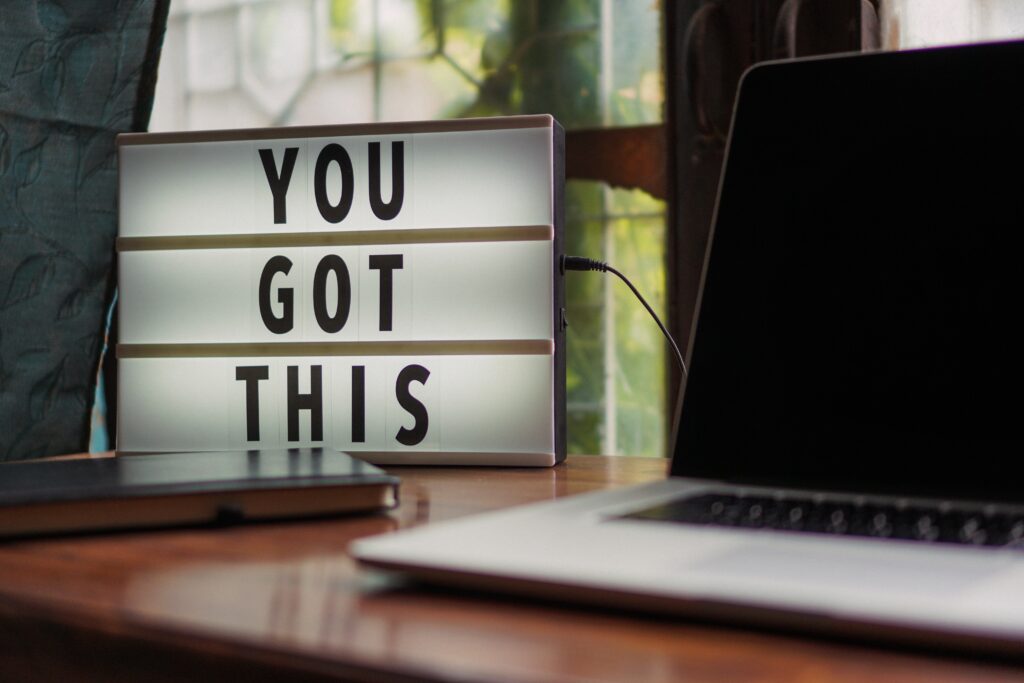
The spiritual aspect is really the superset of our ability to do intellectual labor and our emotional intelligence, the combination of those two things. The reason we’re able to achieve remarkable results when we add emotional intelligence and intellectual intelligence is it connects us with our divinity. It connects us with our genius. It helps us to lower our walls. We become less resistive, less judgmental, and less attached to the outcome.
The leadership that creates in us inspires others to follow our example for themselves. Divinity is at the heart of all of this. The gold standard for authentic emotional intelligence is Christ. The journey to the development of emotional intelligence and the emotional labor required is exactly what He asked us to do. He said, “pick up your cross and follow me. Don’t pick up my cross. I’m going to show you the way, but you have to do this for yourself.” You have to bet on yourself by developing a passion around a desired result that motivates you to move through the fear and anxiety that you will face on the way to achieving that result.
That’s the journey that all of us are called to do. That’s the journey that all of us are called to undertake, but up until now, there’s only been a very small percentage of the population that has been willing to do that type of emotional labor.
The leadership that creates in us inspires others to follow our example for themselves.
But because of the accelerating rate of global change we’re facing with a 500 million-year-old brain that doesn’t like change, we’re being torn out of our comfort zones or being forced to move through the fear and anxiety that’s creating in us. Or if we’re not willing to do that work, not willing to go through that veil of fear, and don’t have that level of motivation to do what Christ asked us to do and what He commanded us to do, then we’re going to fall deeper and deeper into our comfort zones.
Our world will get smaller and smaller as we become more resistive, more judgmental, and more attached to outcomes. We’re really at a tipping point as a species on the planet. We need to change our trajectory dramatically in the next few decades at most.
Quite frankly, there isn’t a single other species on the planet that wouldn’t be better off if we didn’t exist. We’re the virus on the planet, and we need to change that. Our spirituality, the development of connection with our spirituality, and connection with our divinity through the development of our emotional intelligence is the path to doing it, and it will not be easy. It has never been easy, but the results or ROI from doing the work that’s required is incredible.
Here’s an analogy of the difference between IQ and EQ. Let’s think of IQ as somebody getting $10,000 a day for 31 days. At the end of 31 days, you got $310,000. Now, think of EQ as a penny that doubles in value every day for 31 days. On day one, you’ve got 1 penny. On day two, you’ve got 2 pennies, and on day 31, you’ve got $10.7 million.
Not everybody can have a 160 IQ or the ability to do intellectual labor to death. If you have a high IQ, your parents have a high IQ, their parents have a high IQ, and you inherited those genes. That’s fixed genetically. But everybody can develop their emotional intelligence, and the ROI far surpasses our ability to do intellectual labor.
As a matter of fact, there was a four-year study at UC Berkeley comparing IQ with EQ, and they determined that EQ was 400% more valuable than IQ in determining success. I think that number is low, but even if we go with that, we get an idea of the massive value and importance of doing the emotional labor required to develop our emotional intelligence. That’s a gateway to our spiritual intelligence.
Have you had a spiritual awakening that brought you to this realization, or has it just been slow and steady wins in the race?
Become aware of what’s presently occurring in and around you to connect with your spirituality, divinity, and intelligence. Click To TweetNo, this hit me like a bolt between the eyes about 15 years ago. This 54-year path opened. I actually asked Christ to be able to do this work a month after my mother died in January 1968, and I didn’t realize until about 15 years ago that He gave me everything I asked for. He even gave it to me before I asked for it. My being born with dyslexia has been a great help for me in being able to do what I do today in the service of helping others. What I do today comes full circle to the promise I made 54 years ago. I am amazed and incredibly grateful. If I ever needed any proof, I got it a long time ago.
What if somebody needs proof? What do you offer them in that regard? I’ve come across a lot of skeptics in my day. I was one of them up until age 42.
You do the work, and you get the proof. You develop the awareness and the consciousness of what’s going on in you and around you that leads you to also connect with your spirituality, divinity, and genius.
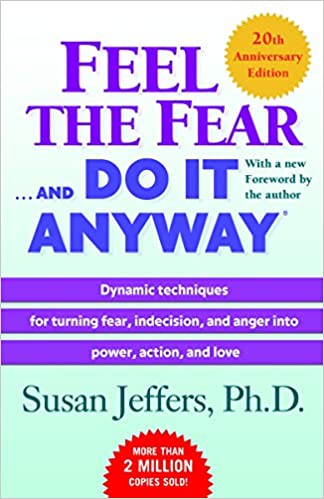
It’s always been there, and it’ll always be there. It’s buried beneath our fear. The only way we connect with it is by learning to move through our fear. Fear is not the enemy. Fear is never going to go away, but it’s something we need to acknowledge and move through as opposed to allowing that fear to control us.
There’s a great book by Susan Jeffers called Feel the Fear and Do It Anyway.
There are a couple of things I want to say here. We’re only conscious about 3%–5% of the time. The rest of the time, we rely on our unconscious habits to determine our behavior and our results. Whatever result we’re getting in our life is a reflection of our current level of consciousness. We cannot get better results with our current level of consciousness. In order for us to get better results, we have to raise our level of consciousness. We do that by learning to stop giving away our energy.
I’ve been proving this all over the world. I’ve coached people running multi-billion dollar companies with thousands of employees, Harvard MBAs, and PhDs. I’ve been a doctoral faculty advisor to folks going through organizational and emotional intelligence doctorates.
There’s an underlying energy physics to all of this. It makes the results of going through this process as predictable and quantifiable as any physical science. A lot of the habits we develop from birth are habits that cause us to unconsciously give away our energy.
We do it in a myriad of ways. We do it with how we communicate, listen, take responsibility, make decisions, and all sorts of ways. When we give away our energy, it creates an energy deficit in us, so at the same time we’re giving away our energy over here, we have to be replacing that energy by trying to steal energy from other people over here. That dynamic is going on inside of everybody all over the world all the time.
In the MBL (Master of Business Leadership) Program, I show people how they’re unconsciously giving away their energy, and I give them better habits to practice to stop doing that. When they stop giving away their energy, the need to steal the energy of other people goes away because they don’t need it.
If how you feel about yourself is based on how somebody else feels about you, you’re giving away your energy unconsciously to determine how you should feel about yourself.
It’s in that process and journey that you develop a higher level of consciousness, develop your emotional intelligence, become a more inspirational leader that people want to follow, and generate remarkable results. The outcomes of doing this very difficult emotional labor are incredible. They’re amazing.
You mentioned earlier that there’s a 13% level of employee engagement. I’m curious to hear what the strategies are that someone can implement right now from listening to this episode that will help them increase their employee engagement and customer engagement besides just generalities like working on being emotionally intelligent, working with love and kindness, and all that.
Here’s an example. This is actually the second habit called authentic listening. The key to authentic listening is not to take anything personally. How somebody feels about you has nothing to do with you. It has to do with what’s going on inside of them. But if how you feel about yourself is based on how somebody else feels about you, who’s running your life? You’re giving away your energy unconsciously to them to determine how you should feel about yourself. If they like you, you like you. If they don’t like you, you don’t like them.
What I’ve described is all in social media. People bend over backward giving away their energy to try and get people to like them. That’s just one example of how people are giving away their energy. As I said, when they’re giving away their energy, they have to be replacing that energy by trying to control or manipulate others to steal their energy. Both of those things are going on at the same time, so when you stop giving away your energy, this stops as well. Does that make sense?
You’re alluding to some principles that are in the Master Business Leadership Program that you’ve created. How many principles are there in MBL? How extensive is the curriculum?
There are about 10 or 12 different habits that I talked about and coached people through during the training program. Initially, it’s 16 weeks where we get together an hour a week for four months, but there are executives and organizations I’ve been working with for over 13 years because the ROI keeps getting greater and greater as they move towards mastery of these habits and principles.

I would say the results start to get better immediately, but the ROI never ends. The longer you practice these habits and the more you work towards mastering them, the better your results.
Which is your favorite habit of MBL?
Presence. Between stimulus and response, there’s a space. In that space is where we get to choose our response and ability to choose our greatest gift and power. Most of us are driven by ego-based fear. Most of us identify with our egos. Our egos never want us to be in the present moment. Our egos want us to feel greater than or less than but never equal to.
The present moment is all that ever exists.
The present moment is all that ever exists. There will never be a future moment, and there is no past moment. We share this present moment with everybody on the planet. The present moment is the only time we can take action and generate a result, but when we allow our egos to control us, we don’t want to spend any time in the present moment. We want to get out of the present moment into some mystical future moment or be controlled by some past moment. As we move towards greater consciousness and enlightenment, we recognize that all there ever will be is the present moment.
There’s an old Zen saying that’s thousands of years old. You probably heard it. “Before enlightenment, chop wood, carry water. After enlightenment; chop wood, carry water.” What that means is that what you do doesn’t change as you move towards enlightenment, but the meaning behind what you do and the presence with which you do it changes. You’re being in the moment. The more at the moment you are, the more influential you are, the more present you are, and the more intellectual you are.
As a matter of fact, getting back to your football story, we spend over $4 trillion a year globally trying to be in the present moment and being in the state of flow where we can shut off that voice in the back of our mind that’s running 24/7 and be more present.
Emotional intelligence connects us with our divinity. Click To TweetThat’s why football players bang their helmets together. They’re trying to stop thinking. That’s why Michael Jordan played basketball as long as he did. Because he always said the game had something to teach him, meaning that when he was playing the game, he was not thinking. I guarantee you that he couldn’t have told you at any moment during the game when he was going to pass, shoot, or dribble. He was in the flow with the present moment.
Every mammal on the planet tries to get in that flow. Being present as much as you can at this moment is the whole key to our existence to take the challenges we face as opportunities and become more present in each moment.
What would be an example of being present in a work environment either as a boss or an employee, and how that might not fit the traditional culture of work?
Being present as much as you can at this moment is the whole key to our existence.
Most organizations have a lot of fear, anxiety, and toxicity. If you don’t take on that toxicity and fear if you remain present, it confuses the people around you initially, and they eventually start to want to know how you’re able to do that.
I’m working with one company that’s working on a global change initiative. The people that are using the skills more and more are standing out as inspirational leaders within the organization because they’re not allowing the fear that changes trigger in them to stop them from being present.
In most organizations, there’s a lot of anxiety and burnout. We see it every day. That’s really a lack of emotional intelligence. That’s really people allowing their fear to control them.
Have you suffered any burnout? What did you do at that time to get through it, and what would you do differently if you knew then what you know now?
I wouldn’t do anything differently because what I did then has brought me to where I am today, and I’m very pleased with where I am today. That was all part of the learning process. But I reminded myself of the emotional connection and commitment that I had made. It’s driven my life for the last 54 years.
There’s nothing that I would rather be doing with my life energy than what I do today. There’s nothing that I would rather be doing than helping people develop their emotional intelligence and obtain better results and inspire others to do the same. I can’t think of a better reason to get up in the morning.

That’s amazing. If you were to have a conversation with one of your clients about their purpose in life and their spiritual mission—I guess life purpose is really the best phrase word for it—let’s say that they’re struggling to figure out what that life purpose is, how would you help them to get through that so they have the clarity, sense of direction, and certainty that gets them up and excited in the morning and not just wondering, am I wasting my life?
It’s a journey where you use your passion and energy level as a compass to know if your actions are moving you towards what living and working on purpose means for you or away from it. So although we all go through life in the dark, we can use our energy level as that compass that can guide us to that throughline in our life that represents our purpose.
By the way, when we’re living and working on purpose, that’s our greatest source of wealth where people will pay us the shiniest beads because that’s really why money was invented, as a way of moving wealth around.
Fear and anxiety can keep us trapped in our comfort zone. Developing emotional intelligence requires hard work, but the rewards are worth it. Click To TweetBy moving towards your distinctive value, your market becomes global because nobody can do a better job of being you than you. You’ve got a global franchise. It’s a matter of learning to let go, to stop giving away your energy, and to learn to become less resistant and less attached to the outcome so that we can be more fully present at this moment.
That’s how we reconnect with what we’re here to do and how we can best serve. It’s a journey. For me, actually, it took 17 years. I actually talked about this in the Master of Business Leadership Program. I followed exactly that path. I think I started in 1990, and by 2007, I was doing less than half of 1% of the number of activities I do today.
Over time, I moved away from things that I didn’t like doing and didn’t energize me and more towards the things that represented how I could best demonstrate love as opposed to fear. It took me 17 years. That’s been my focus ever since.
There isn’t a single cell in your body that was there seven years ago, yet you remain. How can that be?
How often do you think about your mortality?
Not at all. Let me explain. This may give your listeners pause to reflect on what I’m about to say. We’re not living life, we are life. The body that our energy inhabits has a shelf life. As a matter of fact, every cell in our body dies and is replaced at least once every seven-year period.
There isn’t a single cell in your body that was there seven years ago, yet you remain. How can that be? It’s because you’re the energy that gives your body life. When your body ceases to exist, the energy that is you simply leaves your body.
Every cell in your body is vibrating at exactly the same frequency. That’s like your Social Insurance Number in the universe. Nobody else is vibrating at your frequency. That frequency is who you are. That energy is who you are.
I believe quite frankly that the reason we’re here and the reason our energy inhabits our body for a brief 100 years is so that we can take the challenges we face as opportunities to raise our levels of consciousness by learning to face those challenges without giving away our energy, by learning to face those challenges with our walls down, and by coming from love as opposed to fear.
I think that that’s the whole purpose of our existence in this physical form. We are not living a life. We are living for a brief period of time in a physical form, but we are so much more than we could possibly imagine. We cannot conceive intellectually how much we are. It’s just not possible.
Jesus is the gold standard for authentic emotional intelligence. Click To TweetHave you gone to that?
Maybe a little bit, but I don’t have any illusions about how little I know. I think we’re still much closer to the end results of our evolution than we think we are. I think we have a long, long way to go. As I said, we’re at a tipping point because of the accelerated rate of global change and the fact that we don’t like change.
There’s both biological and sociological resistance we have to change. We have to be developing our emotional intelligence to be able to navigate our way through the fear and anxiety that’s going to be triggering us increasingly, so we’re going to go one way or the other. We can go penny-doubling in a positive direction or penny-doubling in a negative direction. One of those two things is going to happen at an accelerated rate.
We have to be developing our emotional intelligence to be able to navigate our way through the fear and anxiety.
The last question here I have for you is if you could just go back in time to when you started your business or this program and also maybe even back to when you lost your mother to breast cancer, what would be the gifts or the silver lining that you might not have seen back then that you see now so you wouldn’t change a thing about what happened because it was all for good? Is there any insight that you got from the additional years of perspective?
We’re all doing the best we can based on our current level of consciousness. I know my dad, my mom, my brothers, and all of us are doing the best we can based on our current level of awareness and consciousness, but we need to evolve so that our ego doesn’t control us.
We live in an environment where we’re bombarded with fear messaging daily. Quite frankly, we’ve been enslaved by our fear, and the development of our emotional intelligence is the gateway to freedom from fear. It’s the gateway to the agency. I believe that’s the real purpose of our being here.
Awesome. If our listener is interested in your Master of Business Leadership Program, going through it themselves, sending somebody through it maybe on their team, just learning from you, following you on social media, reading your insights, and so forth, where should they go? Where would you like to send them?
I’ll give you a link to my Zoom calendar. I’m happy to meet with and chat with anybody that would like to talk with me. I’ll also give you a link to an emotional intelligence newsletter I publish on LinkedIn on a daily basis. There are over 200 issues so far. They’re welcome to subscribe to that. It’s free. Maybe there’ll be something of value there that they can get from it. I’d be happy for you to meet with anybody that would like to have a conversation.
My focus is helping people to become more conscious of the importance of developing their emotional intelligence and betting on themselves.
You also have a podcast, right? The Master of Business Leadership Podcast.
Yup. I have a podcast and have written in lots of books and articles. We got over 200 episodes, but we haven’t published a new one for about 1 ½ years. We’re kind of putting it on the back burner because of COVID, and we haven’t really taken it up again.
Actually, I’ve been on about 70 podcasts as a guest since January of this year, talking about the value and importance of emotional intelligence. My focus is really on helping people to become more conscious of the importance of developing their emotional intelligence and betting on themselves.
Awesome. I am very grateful for you that you have come on the show and shared your amazing journey, all the lessons learned, and everything.
Listener, I hope that you take advantage of this opportunity to learn, grow, and try something outside of your comfort zone. Build your emotional intelligence or work out like you’re going to the gym but on your emotional intelligence. We’ll catch you in the next episode. I’m your host, Stephan Spencer, signing off.
Important Links
Checklist of Actionable Takeaways










 About Phil Johnson
About Phil Johnson
For the past 21 years, Phil Johnson has been dedicated to helping executives and organizations bet on themselves by developing their emotional intelligence. As a result, the Master of Business Leadership program offers its members the potential for an extraordinary life filled with exponential impact and success rather than a conventional level of success.
MBL alums live in the US, Canada, UK, Europe, Japan, Germany, Bosnia, Africa, Australia, the Middle East and Saudi Arabia.
Disclaimer: The medical, fitness, psychological, mindset, lifestyle, and nutritional information provided on this website and through any materials, downloads, videos, webinars, podcasts, or emails is not intended to be a substitute for professional medical/fitness/nutritional advice, diagnoses, or treatment. Always seek the help of your physician, psychologist, psychiatrist, therapist, certified trainer, or dietitian with any questions regarding starting any new programs or treatments, or stopping any current programs or treatments. This website is for information purposes only, and the creators and editors, including Stephan Spencer, accept no liability for any injury or illness arising out of the use of the material contained herein, and make no warranty, express or implied, with respect to the contents of this website and affiliated materials.
LOVED THIS EPISODE
Please consider leaving me a review with Apple, Google or Spotify! It'll help folks discover this show and hopefully we can change more lives!
Rate and Review







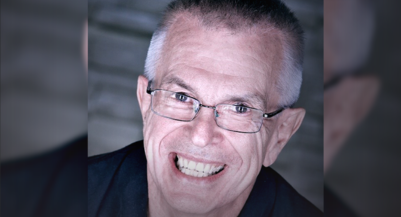
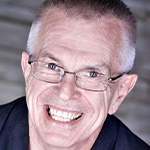 About Phil Johnson
About Phil Johnson